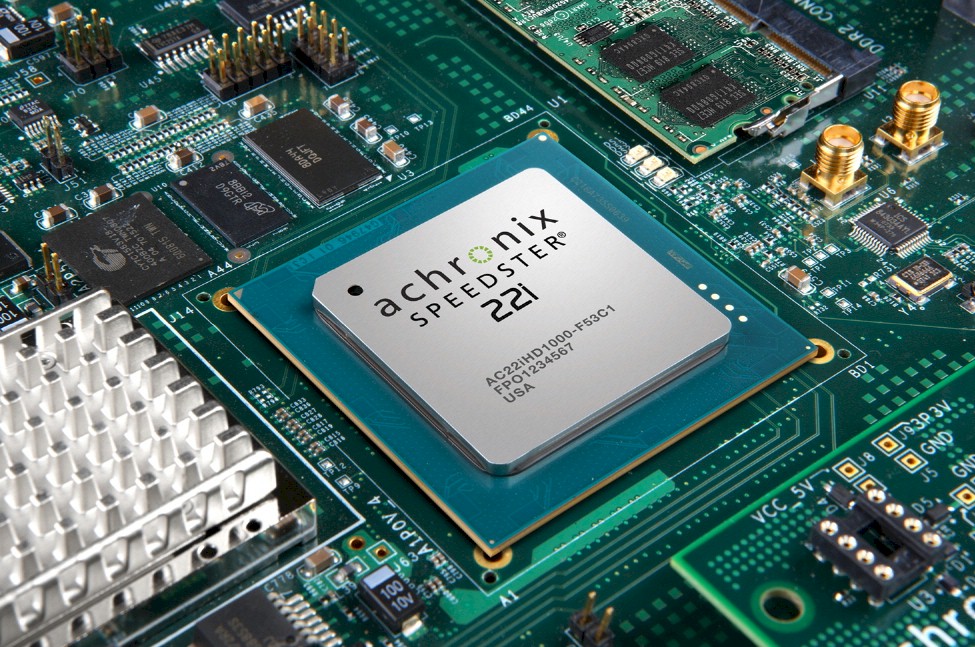Theres Still Room For FPGAs In The Datacenter

Sponsored Post The founders of Achronix, techies from Cornell University, decided to set up their own FPGA company twenty years ago.
Even by that time FPGAs had already been in the field for twenty years and the supplier landscape was dominated by Xilinx (now part of AMD) and Altera (still part of Intel until it gets spun out sometime in the future).
Any market, no matter how well established, tends to reward genuine innovation, and Achronix is still providing value with its own twists on the FPGA theme. The company was funded back in 2004 with $1.2 million from its four founders – Rajit Manohar, John Lofton Holt, Virantha Ekanayake, and Clinton Kelly. It remains a privately held company to this day, having a degree of freedom that public companies never have because they always have Wall Street breathing down their necks, compelling more short-term thinking than is probably wise.
Here at , we think that FPGAs are an important element in the computing spectrum. We also think that given the end of Moore's Law, having devices be malleable is a way to extract more value out of them over a longer period of time. Which delivers its own kind of economic imperative. We understand why Intel and AMD wanted to control FPGAs, and we also understand why it's important for a third option in this market. One that not only sells its Speedster FPGA devices, but which also sells SmartNICs based on those FPGAs as well as IP blocks that allow other chip designers to embed FPGA functionality into their own ASICs.
To take the pulse of the FPGA market, we sat down and had a boisterous chat with Bob Siller, senior director of product marketing at Achronix. Before joining Achronix in 2019, Siller spent nearly five years at Intel driving marketing and sales. Before that he spent nearly 16 years at Altera, starting out as an application engineer and eventually rising through the ranks to be its corporate director of marketing in charge of program management, marketing, and communications. It would be hard to find someone more informed about the FPGA market these days.
Among the many things we discussed with Siller was the important question of generative AI (GenAI). Everybody on Earth right now seems to be looking for compute engines that can do large language model training and inference for GenAI. We wanted to know what Achronix can do for those LLMs and how does the Speedster FPGA stack up to the latest datacenter GPUs from Nvidia and AMD. If you want to know the answer to that question, you can listen to the interview for yourself by clicking the play button above.
Sponsored by Achronix.
From Chip War To Cloud War: The Next Frontier In Global Tech Competition
The global chip war, characterized by intense competition among nations and corporations for supremacy in semiconductor ... Read more
The High Stakes Of Tech Regulation: Security Risks And Market Dynamics
The influence of tech giants in the global economy continues to grow, raising crucial questions about how to balance sec... Read more
The Tyranny Of Instagram Interiors: Why It's Time To Break Free From Algorithm-Driven Aesthetics
Instagram has become a dominant force in shaping interior design trends, offering a seemingly endless stream of inspirat... Read more
The Data Crunch In AI: Strategies For Sustainability
Exploring solutions to the imminent exhaustion of internet data for AI training.As the artificial intelligence (AI) indu... Read more
Google Abandons Four-Year Effort To Remove Cookies From Chrome Browser
After four years of dedicated effort, Google has decided to abandon its plan to remove third-party cookies from its Chro... Read more
LinkedIn Embraces AI And Gamification To Drive User Engagement And Revenue
In an effort to tackle slowing revenue growth and enhance user engagement, LinkedIn is turning to artificial intelligenc... Read more

